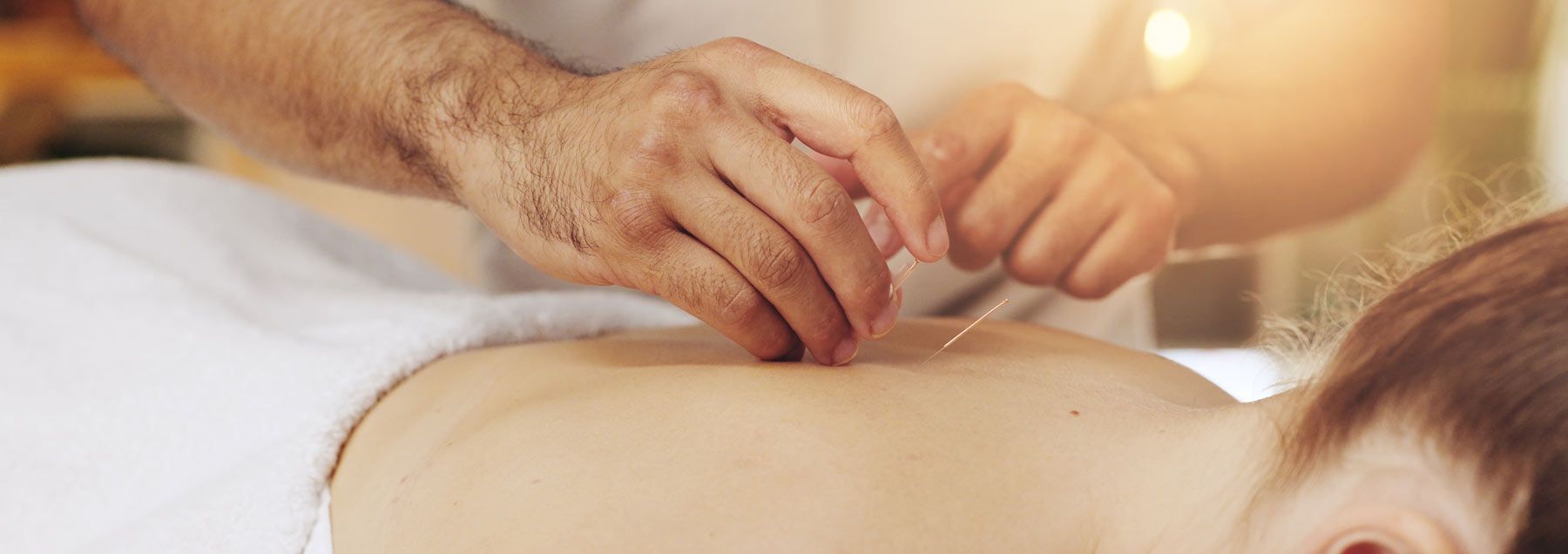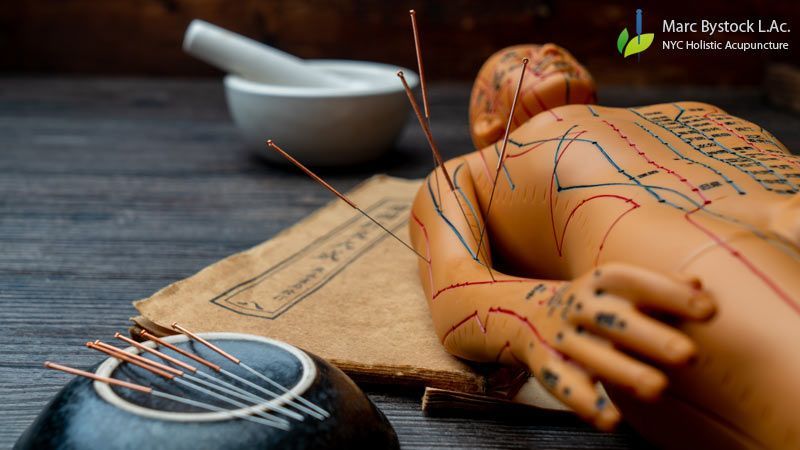Surprising Acupuncture Treatments

Conditions You May Not Be Aware Acupuncture Can Treat
Acupuncture is a practice steeped in ancient wisdom. It's a key component of traditional Chinese medicine. This therapy involves the insertion of thin needles into specific points on the body. It's a technique that has been used for centuries to treat a variety of ailments.
You may be aware of acupuncture's effectiveness in treating pain. It's often used for headaches, migraines, and chronic pain conditions. But the scope of acupuncture treatments extends far beyond these common uses. This blog post will delve into the wide range of conditions that acupuncture can treat. Some of these may surprise you. From digestive issues to mental health concerns, acupuncture offers a holistic approach to health and wellness.
We'll also explore the role of acupuncture in complementary cancer care, women's health, and even cosmetic benefits. So, let's embark on this journey to discover the many things you may be aware acupuncture can treat.
Understanding Acupuncture and Its Principles
Acupuncture is rooted in the philosophy of balancing the body's energy, known as "qi." Practitioners believe that qi flows through pathways in the body called meridians. When qi is disrupted, it can lead to illness. Acupuncture aims to restore this balance by targeting specific points on these meridians. Thin, sterile needles are inserted at these points, which can stimulate the body's natural healing process.
The goal is to encourage physical and emotional well-being. Acupuncture not only addresses symptoms but seeks to treat the underlying causes of health issues. This holistic approach differentiates it from many Western medical practices.
Conditions Acupuncture is Commonly Known to Treat
Acupuncture is renowned for its role in pain management. It is often used to relieve chronic pain, which affects millions globally. By stimulating nerve-rich areas of the skin and other tissues, acupuncture can trigger a response from the body, reducing pain. Headaches and migraines are another common ailment treated with acupuncture. Many individuals report significant relief after treatment. The therapy targets points that improve blood circulation and relax tension.
Osteoarthritis sufferers often turn to acupuncture for its soothing effects. It can reduce joint inflammation and discomfort. Women experiencing menstrual cramps and menopause symptoms can also find comfort in acupuncture treatments. Additionally, acupuncture is beneficial for respiratory issues like allergic rhinitis.
Ultimately, these common applications of acupuncture illustrate its versatility and potential in various health scenarios. It is an effective complement to other treatments, offering relief without the side effects associated with some medications.
Surprising Ailments Addressed by Acupuncture
Acupuncture is not just limited to treating pain. It also offers relief for an array of surprising ailments. For instance, digestive issues like irritable bowel syndrome (IBS) can be managed through acupuncture. It works by targeting specific points that aid in regulating digestive function and alleviating discomfort.
Respiratory conditions, often persistent and frustrating, can also be addressed effectively with acupuncture. Conditions such as asthma and bronchitis may see improvement following regular sessions. The therapy can help open airways and enhance lung capacity, providing a breather for sufferers.
Sleep disorders, such as insomnia, find a friend in acupuncture. Many patients have reported improved sleep patterns and quality after treatment. By calming the mind and relaxing the body, acupuncture aids in achieving restful sleep.
Mental health challenges like stress, anxiety, and depression also fall within acupuncture's reach. Through its calming effect on the nervous system, it can lower stress levels, improve mood, and decrease anxiety. Acupuncture provides a holistic approach to mental well-being without relying on medication.
Here’s a list of surprising ailments that acupuncture can treat:
- Digestive Issues like IBS
- Respiratory Conditions
- Sleep Disorders and Insomnia
- Mental Health: Stress, Anxiety, and Depression
These surprising applications highlight acupuncture's potential as a versatile and complementary health treatment. For those seeking non-pharmaceutical options, acupuncture provides a compelling alternative.
Acupuncture's Role in Complementary Cancer Care
Cancer patients often endure challenging side effects from treatments like chemotherapy and radiation. Acupuncture can play a supportive role in managing these effects. By reducing nausea, vomiting, and fatigue, it offers much-needed relief.
While not a cure for cancer, acupuncture helps improve the quality of life for patients. By minimizing pain and enhancing overall well-being, it supports the patient's journey through treatment. It is valued for its ability to provide comfort without the need for additional medications, making it a valuable component of complementary cancer care.
Acupuncture in Women's Health and Fertility
Acupuncture is a versatile tool in women's health, addressing issues like menstrual cramps and menopause symptoms. It offers relief by balancing hormones and improving circulation. Many women find significant improvement in their comfort and quality of life.
In the realm of fertility, acupuncture shows promising results. It is often used alongside fertility treatments, including IVF, to enhance success rates. By reducing stress and promoting a healthy uterine environment, acupuncture can support conception efforts naturally. This approach makes it an appealing option for women seeking holistic support in their reproductive health journeys.
The Benefits of Acupuncture for Heart Health and Hypertension
Acupuncture may be beneficial for maintaining heart health. This ancient practice can help by improving circulation and reducing stress, which are critical factors for cardiovascular wellness. By promoting relaxation, acupuncture assists in lowering stress-related heart risks.
Managing hypertension is another domain where acupuncture shows promise. Research suggests it can help regulate blood pressure levels. Through the release of endorphins and the improvement of blood flow, acupuncture supports overall cardiovascular health. This natural approach offers a non-invasive option for those seeking to complement traditional treatments for heart-related issues.
Acupuncture's Impact on Neurological Conditions and Cognitive Health
Acupuncture shows potential in treating various neurological conditions. It may provide relief for symptoms associated with Parkinson's disease and multiple sclerosis. By stimulating specific points, acupuncture can enhance nerve function and reduce symptoms.
Cognitive health might also benefit from acupuncture. Some studies suggest it can improve memory and concentration. By promoting blood flow to the brain, acupuncture supports mental clarity and cognitive function. This holistic approach offers an alternative to support brain health and combat neurological challenges.
Acupuncture for Skin Conditions and Cosmetic Benefits
Acupuncture is not just about internal health; it also offers cosmetic advantages. This ancient practice can aid in treating skin conditions like eczema and acne. By improving blood circulation and reducing inflammation, acupuncture promotes healthier skin.
Cosmetic acupuncture, often referred to as facial rejuvenation, aims to enhance skin elasticity and reduce wrinkles. It stimulates collagen production, offering a natural alternative to more invasive procedures. With its growing popularity, many seek acupuncture for its holistic benefits to both skin health and overall appearance.
Safety and What to Expect During an Acupuncture Session
Acupuncture is widely considered safe when performed by a licensed practitioner. They follow strict hygiene protocols, including using single-use needles to prevent infections. It's crucial to choose a qualified acupuncturist to ensure the best experience and outcome.
During an acupuncture session, you'll be asked to lie down comfortably. The acupuncturist will insert very fine needles into specific points on your body. Some people feel a tingling sensation, while others feel relaxed and calm. Sessions typically last between 20 to 30 minutes, and many find them highly soothing.
Conclusion: Integrating Acupuncture into Your Health Regimen
Incorporating acupuncture into your health routine could offer numerous benefits. It complements traditional medicine and provides a holistic approach to treating various ailments. From chronic pain to mental health, acupuncture's versatility is significant. An integrative approach can enhance overall well-being. This ancient practice brings balance and peace, supporting both body and mind.
Treatment Hours
- Monday
- -
- Tuesday
- -
- Wednesday
- -
- Thursday
- -
- Friday
- -
- Saturday
- -
- Sunday
- Closed




